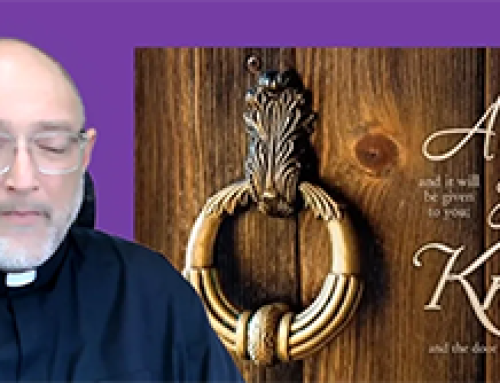Fr Paul Gooley reads from the Gospel of John (10: 1-10) in which Jesus says, ‘Anyone who does not enter the sheep fold through the gate, but gets in some other way, is a thief and a brigand. The one who enters through the gate is the shepherd of the flock’.
Fr Paul says the presentation of the Good Shepherd is the nearest approach to a parable given to us in the Gospel of John.
Jesus tells it immediately after a major clash with Pharisees as a result of his cure of the Man Born Blind.
There would come a day when God would send – the ideal good shepherd – as his representative. This shepherd would be God himself. So, Jesus’ description of himself as the Good Shepherd is, at once, a claim to be the Messiah and, in some sense, to be himself the divine Shepherd of Israel.
Stories and images of farming life abound in all through the Gospels, a testimony to the background of Jesus and his hearers in the farming communities of Galilee. These were the images which would naturally spring to mind.
In most of these parables sheep appear as helpless creatures, prone to getting lost and needing to be sought out, carried back on the shoulders of the shepherd – an apt image it is thought, for us, most of us most of the time!
Only in this parable are they more responsive and seem to have a real relationship with their shepherd, having the confidence to go out through the gate into freedom when he opens it, recognising his voice, following him, and even responding when he calls their name.
Fr Paul says, today, we might pray to have that same confidence and warmth of relationship with Jesus.






Leave A Comment